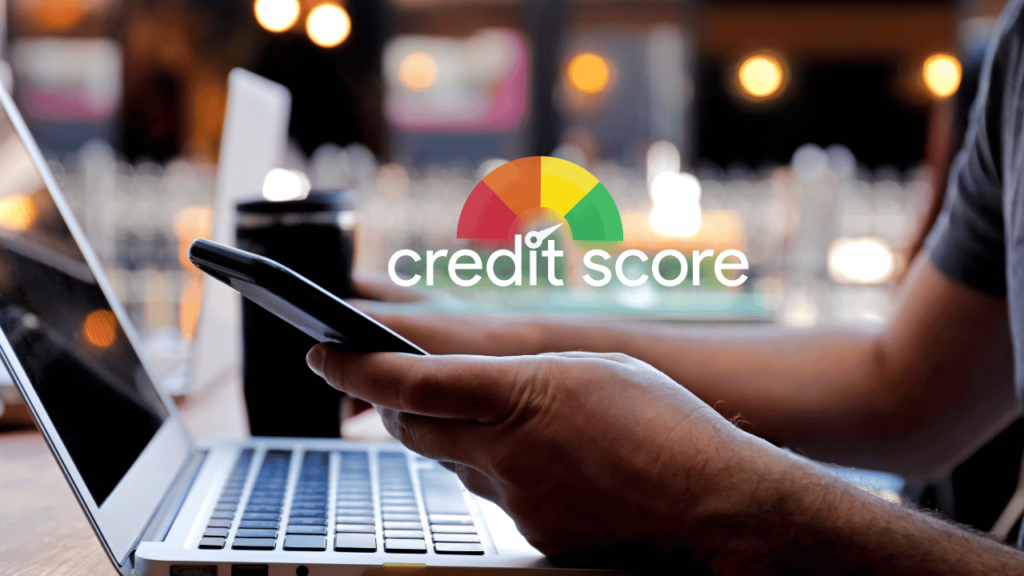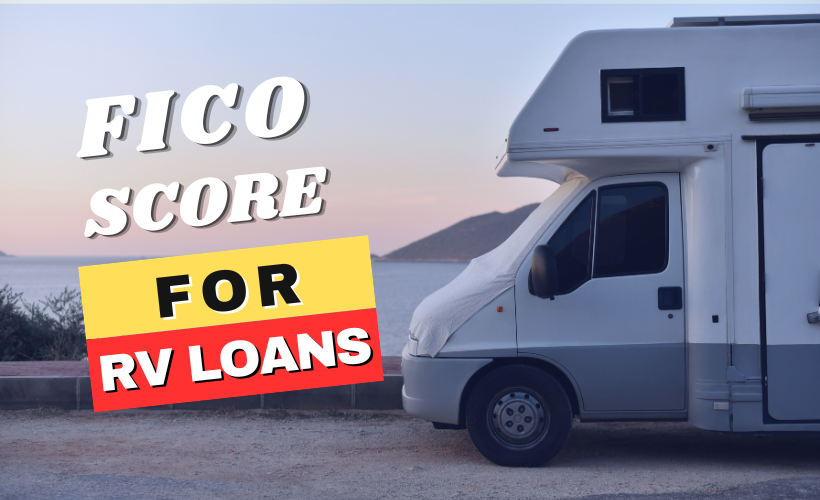Buying a recreational vehicle can be an exciting way to travel and see the country. However, financing an RV is a big financial commitment that requires careful consideration of your credit standing. When you apply for an RV loan, lenders will assess your creditworthiness using your FICO score. But which FICO score do they look at?
Let’s unpack the different FICO scoring models and see which type of score lenders prefer for RV loans. Spoiler alert: It’s usually your FICO Auto Score that holds the key to RV financing success.
Quick Answer 👇
RV lenders typically use the FICO Score 8 or FICO Score 9 when assessing creditworthiness for RV loans.
The Three Main FICO Credit Scores
Before we dive into auto scores, let’s review the three primary FICO scores you’ll encounter:
- FICO Score 8 – This is the most commonly used FICO score, introduced back in 2009. It’s used by over 90% of lenders today.
- FICO Score 9 – This newer FICO model was created in 2014 to account for more niche credit situations.
- FICO Auto Score – Designed specifically for auto lenders, this score weighs your auto-related credit history more heavily.
Here’s a quick comparison of the three main FICO score versions:
| Score Model | Introduced | Used For |
|---|---|---|
| FICO Score 8 | 2009 | General credit decisions |
| FICO Score 9 | 2014 | Specialized cases |
| FICO Auto Score | 2010 | Auto & RV loans |
While FICO 8 is the most popular across industries, auto and RV lenders tend to prefer the tailored FICO Auto Score.
Auto Scores Prioritize Relevant Factors
Since an RV loan falls under the auto lending category, lenders place extra emphasis on your FICO Auto Score when reviewing an application.
Here’s why auto-specialized scores make sense for RV financing:
- An RV loan terms resemble auto loan terms (length, interest rate, etc.)
- RVs and autos have comparable depreciation timelines
- Auto scores highlight your history with car/RV loans
Auto scores specifically weigh factors like your past auto loan payments and new credit applications more heavily than other scores. This gives lenders better insight into your auto borrowing profile.
While FICO 8 is still considered, your Auto Score will be the primary scoring model used to evaluate your RV loan eligibility and terms.
What Impacts Your Auto Credit Score?
Now that we know lenders care most about your FICO Auto Score for RV financing, let’s look at what goes into this special auto-focused credit score.
Here are the five main factors that influence your FICO Auto Score:
- Auto loan history – Existing and past auto loan payments. Whether you paid on time.
- Length of credit history – How long you’ve had credit accounts open.
- New credit – Number of new accounts and credit inquiries.
- Credit mix – Types of credit accounts you have (credit cards, loans, etc).
- Outstanding debt – How much you owe across accounts and your utilization rate.
As you can see, this score drills down specifically on auto-related factors like your car loan payment track record. Keep these areas in mind as you try to improve your Auto Score.

Tips to Improve Your FICO Auto Credit Score
Here are some smart tips to help boost your all-important FICO Auto Score before applying for an RV loan:
- Make on-time payments for all installment loans (car loan helps most)
- Keep overall credit card balances low
- Limit new credit applications
- Build history with past auto loans
- Aim for a mix of account types (card, loan, etc)
- Watch credit utilization rate across all accounts

Following these tips demonstrates responsible auto loan behavior to lenders.
Check All Three of Your FICO Scores
While your FICO Auto Score carries the most weight for an RV loan application, it’s wise to check all three of your credit scores as you monitor your credit standing.
FICO 8, FICO 9, and FICO Auto scores can show significant variations since they weigh factors differently.
Reviewing all three main credit scores gives you a complete picture of your credit health from multiple angles. Understand where you stand currently with each scoring model.
You can access your scores for free through credit monitoring sites like Credit Karma. Or you can purchase them directly from myFICO.
Comparing your FICO 8, FICO 9, and Auto scores lets you pinpoint problem areas to tackle across your credit history.
RV Loan Success Relies on Your Auto Credit Score
When applying for recreational vehicle financing, the FICO Auto Score reigns supreme in the lender’s decision. This special scoring model weighs auto-related factors like payment history and credit inquiries most heavily.
Keep a close eye on your Auto Score as you approach RV buying season. Work on improving any weak spots, so you roll into the dealership primed for approval. Managing your credit carefully in the months before applying can help guarantee the keys to your dream RV end up in your hands.
Frequently Asked Questions (FAQs) About RV Financing
Q: What credit score does RV lenders use?
A: RV lenders typically use FICO credit scores, with a preference for higher scores (700 and above) for better loan terms.
Q: Which FICO score is better, 630 or 750?
A: A FICO score of 750 is significantly better, offering more favorable RV loan terms and higher approval odds than 630.
Q: Can I buy an RV with a 700 credit score?
A: Yes, a 700 credit score is generally considered good, increasing your chances of RV loan approval and favorable rates.
Q: Which FICO score is used most by lenders?
A: The FICO Score 8 is commonly used by lenders, but FICO Score 9 and others may also be used.
Q: Is it hard to get approved for a loan for an RV?
A: Approval difficulty varies, but a higher credit score and manageable debt-to-income ratio can ease the process.
Q: Can I buy an RV with a 620 credit score?
A: Yes, it’s possible with a 620 credit score, but expect higher interest rates and possibly more stringent terms.
Q: What is the debt-to-income ratio for RV financing?
A: Typically, lenders prefer a debt-to-income ratio below 45% for RV financing, but requirements may vary.
Q: What is a typical RV loan interest rate?
A: RV loan interest rates vary, but in recent years, they’ve ranged from 4% to 7%, based on creditworthiness and loan terms.
Q: Can I get an RV loan with a 580 credit score?
A: It’s challenging with a 580 score, but some lenders may offer loans with higher interest rates and stricter terms.
Q: Where is the best place to get an RV loan?
A: Banks, credit unions, and online lenders are common sources. Shop around for the best rates and terms.






